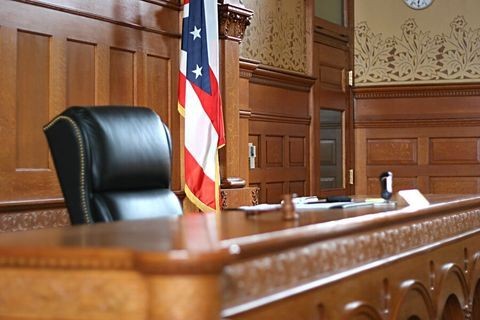Education
Overview
Today’s educational institutions face complex, interconnected challenges that demand a comprehensive and collaborative approach. Crowell & Moring’s Education Practice brings together a diverse team of lawyers with experience across multiple disciplines, including:
|
|
Contacts
Insights
Client Alert | 2 min read | 09.22.25
Department of Education Discontinues Discretionary Grant Funding for Minority-Serving Institutions
Client Alert | 3 min read | 08.08.25
Client Alert | 4 min read | 08.05.25
Representative Matters
Federal Grants and Government Procurement
- Successfully represented a major university in a high-profile False Claims Act (FCA) matter involving alleged undisclosed foreign funding, achieving a favorable settlement without admission of liability after thorough analysis and strategic negotiation, significantly reducing the initial claims and potential penalties.
- Advising higher education institutions on compliance with new NIH Civil Rights terms and conditions for grants and cooperative agreements, including analyzing implications for research programs and developing strategies for implementation and potential litigation.
- Advising a financial institution that supports the Department of Education in responding to inquiries from state regulators.
- Advising universities on compliance with federal funding requirements, including grant management, auditing, and risk assessment, as well as navigating complex issues such as intellectual property, foreign influence, and national security concerns, particularly with regard to international partnerships and exchange programs.
- Crafting innovated appeals of grant terminations and certification requirements applicable to grant recipients for private and public institutions of higher education.
- Counseled a university on its contractual rights and obligations as the majority partner responsible for the operation of a national laboratory.
- Advised National Laboratory on government contracts issues, including cost allowability issues and contract negotiation risks and strategies.
- Counseled universities regarding cost accounting regulations and standards for U.S. government contracts and grants, including labor charging practices, cost allocation methods, and statutory limits on the availability of funds.
Academic Affairs and Governance
- Providing strategic counsel and litigation advice to higher education institutions on complex issues, including Title VI, Title IX, and Section 1981 claims, with experience advising on DEI initiatives, affirmative action, and campus policies, and defending clients in high-stakes litigation and investigations, including post-Students for Fair Admissions (SFFA) compliance and policy development.
- Representing an HBCU in defending Title VI, contract, and other claims in federal court.
- Submitting a Supreme Court amicus brief on behalf of HBCU leaders arguing in support of allowing some consideration of race in university admissions decisions.
- Defending universities against federal and state law claims arising from allegations of student misconduct and student disciplinary proceedings brought under Title IX; advising universities on compliance with federal statutes, including FERPA.
- Conducting sensitive investigations into misconduct allegations for educational institutions.
- Counseling educational institutions on accommodations for students.
- Counseling education clients, including public and private schools and academic associations, on antitrust issues and compliance.
- Navigating federal funding, admissions, and scholarships for educational institutions.
- Advising colleges and universities on faculty and student matters to ensure adherence to federal and state laws and promote inclusive and equitable academic environments.
- Represented law schools and professors in a First Amendment challenge to the Solomon Amendment.
- Represented as amici in a matter involving a constitutional challenge to the way students could be assigned to schools.
- Successfully represented a prominent public California university system in significant matters, including challenges to COVID vaccination requirements and under the FCA, obtaining dismissal in the latter.
- Represented Stand True in an amicus brief filed in the Supreme Court for a case involving the First Amendment rights of high school student organizations.
- Successfully challenged certification requirements on First Amendment grounds, leveraging experience from leading cases, such as Rumsfeld v. Forum for Academic & Institutional Rights, Inc., to inform strategies for defending clients’ rights and freedoms, including creating associations to collectively address constitutional concerns.
Academic Medical Centers
- Counseling academic medical centers on issues concerning clinical research, licensing, data privacy, and intellectual property.
- Conducting compliance assessments and providing guidance to universities and academic medical centers on regulatory issues including clinical research, healthcare operations, and licensure of medical staff, such as physician and nurse agreements.
- Defended, and settled with no consideration paid to plaintiff class, class action seeking up to $700 million in statutory damages arising out of alleged disclosure of protected medical records by university medical center in violation of the state Confidentiality of Medical Information Act.
- Represented university-affiliated research institution in USDA financial and administrative review of institutional use of grant funds to determine compliance with federal administrative requirements, cost principles, and implementing regulations.
- Defended major academic medical center in qui tam action brought under the FCA; relator alleged that center's medical faculty failed to follow Medicare billing requirements in certain circumstances.
Intellectual Property and Life Sciences
- Advising biotechnology and pharmaceutical companies on intellectual property and regulatory issues and contracts related to research and development.
- Providing comprehensive intellectual property services to universities and medical centers, including global trademark portfolio development and enforcement, litigation, copyright counseling, licensing agreements, tech development and transfer negotiations, and patent procurement and prosecution.
- Assisting university clients with NIH and IRB regulations and compliance in the research and development process.
- Won summary judgment on behalf of major research university in licensing dispute involving claims by a pharmaceutical company that university had improperly licensed rights to other compounds to a rival company.
- Counseled universities as to unique intellectual property issues arising in grant agreements with the federal government and not-for-profit entities and in sponsored research agreements with for-profit companies.
Privacy and Cybersecurity
- Retained by an Ivy League university’s Office of the General Counsel to provide ongoing advice on research projects involving cybersecurity, privacy, and technology-related issues.
- Supported leading state research university in their response to cybersecurity incidents impacting payment systems and technology involved in performance under federal government contracts and grants.
- Counseled university system with respect to privacy issues throughout their contracts, including drafting vendor agreements to ensure PCI compliance, and updating standard templates to cover confidentiality, indemnification, notification of incidents, and other security best practices. Negotiated a payment processing agreement with a large financial institution handling credit card transactions for the university.
- Defending 17 class actions filed against a university arising out of a cyberattack against its health system. The putative class sought over $1 billion in statutory damages and also asserted breach of contractual assurances regarding the security of their health information. A court approved a class-wide settlement in which the majority of the settlement funds were used for additional investment in the health system's cybersecurity program.
Regulatory Compliance
- Counseling universities with respect to export control issues in conducting joint international research projects associated with space exploration.
- Preparation of guidance on scope of fundamental research exclusion from export controls and application in both research and classroom settings.
- Preparation of advisory opinion requests concerning export control status of products developed through university and collaborative research projects.
- Internal investigation and voluntary disclosures of potential export control violations involving university and research center projects.
- Advised on preparation of petitions to U.S. Department of Commerce and U.S. Customs and Border Protection for favorable import duty treatment for laser interferometer components.
Labor and Employment
- Litigation for university clients, including to defend against federal civil rights and discrimination claims.
- Litigating discrimination and Equal Pay Act claims, including those implicating tenure systems.
- Counseling educational institutions on accommodations for employees.
- Advising higher education institutions on personnel issues, including hiring and large-scale reductions in force.
- Conducting investigations of harassment, discrimination, and retaliation complaints, including sexual assault and Title IX claims.
- Advising higher education institutions on compliance with employment laws and regulations, including pay equity, diversity, equity, and inclusion (DEI) programs, considering evolving legal requirements, including the implications of Supreme Court decisions and executive orders, and the use of artificial intelligence and machine learning in employment decisions.
- Developing strategies for retaining top talent and promoting DEI in the higher education workplace.
- Providing guidance on best practices for boards of directors and senior leadership in higher education institutions to achieve business goals while ensuring compliance with employment laws and regulations.
- Successful defense of wrongful termination and whistleblower claims brought by the former dean of a major medical school. Obtained favorable decision from administrative tribunal as well as summary judgment in court.
- Successfully represented university in arbitration dispute with union involving interpretation of collective bargaining agreement and related wage and back pay dispute.
Investigations
- Conducting investigations of sexual assault, harassment, and discrimination claims.
- Helping universities navigate investigations and negotiate resolution agreements with OCR.
- Investigated and negotiated a civil FCA settlement on behalf of a public university with the U.S. Department of Justice and multiple Offices of Inspectors General regarding alleged failures to disclose current and pending support on federal grant applications.
- Investigated potential export control violations on behalf of a private university and its affiliated national laboratory that resulted in a finding of no violations by the U.S. Department of Commerce’s Bureau of Industry and Security.
- Conducted a congressional investigation on behalf of a private university in response to a subpoena from the House Select Committee on the Coronavirus Response.
- Conducted a congressional investigation on behalf of public universities in response to a letter of inquiry by the House Select Committee on the Communist Chinese Party concerning admissions and research security practices.
- Conducted an investigation into criminal and civil allegations of health care violations on behalf of a private university in response to a subpoena issued by the U.S. Department of Justice.
Claims Recovery
- Recovered more than $5 billion for clients, including universities and colleges, through affirmative recovery matters.
- Submitted claims on behalf of universities in pending matters involving electronics, financial services, pharmaceuticals, and food providers.
- Collected, organized, and analyzed voluminous data to determine claims recovery opportunities in multiple pending matters.
- Ongoing counseling with respect to universities’ decision to opt out of class action settlements.
Contacts
Insights
Client Alert | 2 min read | 09.22.25
Department of Education Discontinues Discretionary Grant Funding for Minority-Serving Institutions
Client Alert | 3 min read | 08.08.25
Client Alert | 4 min read | 08.05.25
Insights
- |
06.15.23
Government Contracting Law Report
The Foreign Sovereign Immunities Act: 2014 Year in Review
|07.01.16
Law and Business Review of the Americas
The Foreign Sovereign Immunities Act: 2013 Year in Review
|01.05.16
Law and Business Review of the Americas
Proposed Rule to Bring More Oversight to Debit Card Providers Servicing Federal Financial Aid Recipients
|05.21.15
Crowell & Moring's Public Policy Bulletin
Professionals
Insights
Client Alert | 2 min read | 09.22.25
Department of Education Discontinues Discretionary Grant Funding for Minority-Serving Institutions
Client Alert | 3 min read | 08.08.25
Client Alert | 4 min read | 08.05.25
Contacts
Insights
Client Alert | 2 min read | 09.22.25
Department of Education Discontinues Discretionary Grant Funding for Minority-Serving Institutions
Client Alert | 3 min read | 08.08.25
Client Alert | 4 min read | 08.05.25



















